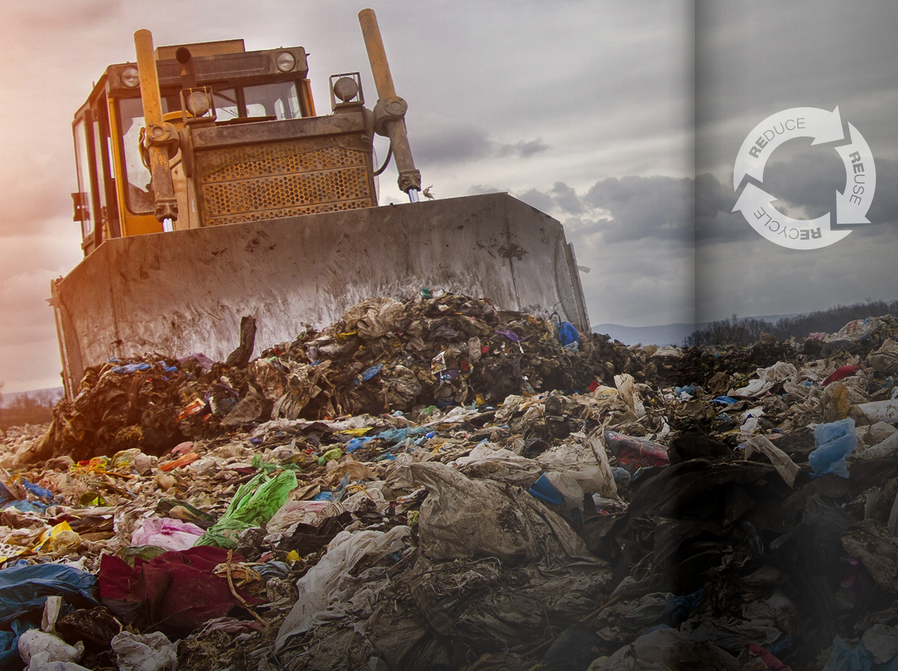Micro-Plastic Warrants Action
Toxic Microplastics are Overtaking our Planet and Bodies! New Product Innovations Can Reduce Landfill Pollution and Eliminate Plastics From the Global Supply Chain!
---------------------------------------------------------------------------------------------------------------------------------------------------
Large volumes of plastic enter the environment every year resulting as persistent mismanaged waste. Plastic pollution is one of the most pressing and critical environmental issues facing the planet. It is an environmental,
WHAT IS PLASTIC POLLUTION
Plastic pollution is the accumulation of plastic objects and particles in the Earth's environment that adversely affects humans, wildlife and their habitat.
Plastic products include every day, single-use items such as plastic bottles, razors, toothbrushes, pill bottles, food wrappings, cups, deli containers, plastic bags and microbeads used in cosmetics within health and beauty.
OXO-DEGRADABLE
The chemical structure of most plastics renders them resistant to many natural processes of degradation referred to as oxo-degradable. Oxo-degradable plastic products do not biodegrade. Instead it slowly breaks down into smaller and smaller pieces and eventually into fine toxic microplastics resulting in particles smaller than five millimeters in size. These fragments remain in the environment where it eventually makes its way into the food chain.
Don’t Contribute to the Problem-Be Apart of the Solution
HUMANS
New research has found microplastics in human blood and it confirms what many researchers have hypothesized for some time: When humans ingest or inhale microplastics, the particles don’t merely pass through the body but rather remain there. That’s especially significant given just how much humans are likely exposed to microplastics by accidentally inhaling or ingesting them. In fact, one 2019 analysis estimated that people take in roughly a credit card’s worth of microplastics every week but until now, there’s been limited research into whether the particles remain in the body where they could potentially cause harm to internal organs or the endocrine system.
Last winter, another study was conducted by Italian researchers who examined six placentas and found microplastics in four of them (Greenwire, Dec. 22, 2021). Another pilot study last year looked at feces from six infants and 10 adults and found nanograms of polyethylene terephthalate, a type of micro-plastic or nano plastic, in both. Microplastics we re 10 times higher in the baby poop than in the adult feces. I'll stop here but encourage you to do more reasearch but folks microplastic pollution is a serious problem that can't be taken lightly.
re 10 times higher in the baby poop than in the adult feces. I'll stop here but encourage you to do more reasearch but folks microplastic pollution is a serious problem that can't be taken lightly.
ANIMALS
Some researchers suggest that by 2050, there could be more plastic than fish in the oceans by total weight. Living organisms, particularly marine animals, can be harmed either by ingestion of plastic waste, or through exposure to chemicals within plastics that interfere with their physiology and lastly, from the mechanical effects of plastic objects such as entanglement or suffocation.
When plastic breaks down into microplastics it becomes a different kind of threat to wildlife. Smaller fish, or those species low on the food chain like plankton and oysters, consume microplastics when filtering water. Microplastics, and the toxins they contain, get passed upwards through the food chain, eventually getting ingested by large marine animals and by humans.
Reduce Landfill Pollution, Eliminate Plastic From the Global Supply Chain with MDS’s Biodegradable & Eco-Friendly Products!
Environmental concern has led to new efforts and innovations in product development concentrated on developing sustainable alternatives. For example hand protection specialists such as SHOWA® and SW® Sustainable Solutions have introduced additives into their single-use nitrile glove formulas that enable gloves to breakdown into healthy, nutrient rich soil within years, not centuries. Superior Glove® KeepKleen® gloves are a new choice for sustainable hand protection.
Companies such as Portwest® Planet, PIP® (Protective Industrial Products) and Wells Lamont are depleting stockpiles of P.E.T. water bottles and converting them into recycled bio-based yarns (rPET) used to make industrial work gloves and cut-resistant sleeve protectors including ANSI complaint hi-visibility work wear.
Plant-based resins such as bagasse (sugarcane) and Polyactic Acid (PLA) (corn) is transforming single-use food catering and to-go food service with compostable foodware for humans and our pets, designed to break down within 12 weeks leaving behind healthy, nutrient rich soil! Other innovations such as bamboo is being used to knit work gloves and it’s replacing plastic handle toothbrushes in an attempt to reduce landfill and plastic pollution. Better for the planet, PIP's new ECOSeries™ BioSoft® biodegradable ear plugs are the very first ear plugs constructed from bio-based foam technologies!
If you do the math, you’ll realize those pennies you save purchasing cheap plastic alternatives really doesn’t equate to big money, but it is equating to massive damage to our Planet and consumers know this! Purchasing Eco-friendly supplies strengthens your brand and shows you care. It is also appreciated and even expected in many circles by consumers.
Protect life, Earth and communities. Please consider switching to eco-friendly supplies today. All you need to do is tap the link below and …
+shop for sustainable hand protection here
+shop for sustainable hi-viz clothing here
+shop for sustainable toothbrushes here
+shop for sustainable desiccants here
+shop for sustainable foodware here
Monday - Friday 8:30am - 4:30pm Eastern Standard Time
Click or Call
Orders. Questions. Samples. Volume Discounts. Special Requests.
+(800) 274-4637 | +(716) 668-4001 | [email protected] | eco-MDSassociates.com | MDSassociates.com
""We Want You to Return Home Safely Every Day"



